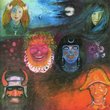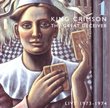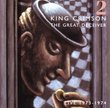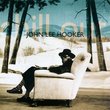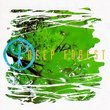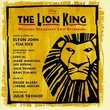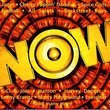| All Artists: King Crimson Title: Epitaph Members Wishing: 9 Total Copies: 0 Label: Discipline Us Release Date: 5/6/1997 Album Type: Box set, Live Genres: Pop, Rock, Classic Rock Styles: Progressive, Progressive Rock, Psychedelic Rock Number of Discs: 2 SwapaCD Credits: 2 UPC: 633367960726 |
Search - King Crimson :: Epitaph
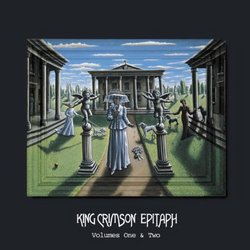 | King Crimson Epitaph Genres: Pop, Rock, Classic Rock
Two CD Set is a Definitive Collection of Studio Sessions, Live Highlights, and a Complete 1969 Concert, all Previously Unreleased. |
Larger Image |
CD DetailsSynopsis
Album Details Two CD Set is a Definitive Collection of Studio Sessions, Live Highlights, and a Complete 1969 Concert, all Previously Unreleased. Similar CDs
Similarly Requested CDs
|
CD ReviewsMaking History, or The Death Of The Universe As An Art Form S. Nyland | Six Feet Of Earth & All That It Contains | 07/15/2006 (5 out of 5 stars) "Words fail me, but I will try, and please forgive me if this goes on longer than may seem necessary. One can read about what it was like to be there when history is being made, but it's never quite the same as actually having witnessed it for yourself. Anyone who is even remotely interested in King Crimson, Robert Fripp, 1970's Art Rock (now called Prog Rock in an attempt to deflate it's meaningfulness by people who don't like it), the end of the Flower Power era and the onset of the Age of Aquarius simply *MUST* pick up this box set to compensate yourself for having missed out on being there, or as an at-times tearful walk down memory lane for those who were. As Mr. Fripp himself points out in his (as usual) highly detailed, insightful and endearingly stuffy liner notes, the recordings contained on this box set or the first King Crimson album "In The Court of the Crimson King" (or "ITCOTCK" for short), cannot come close to encapsulating the sheer power, majesty, and awe-inspiring terror that was King Crimson circa 1969. They were the perfect band for the end of that decade and it is a shame they did not continue as a unit beyond that legendary final show at the Filmore West -- recreated on this box set in it's completion for the first time ever -- but fate is often beyond the control of those who are destined to live it. To sum up, those Crimson fans who may even be familiar with this band's work from "ITCOTKC" (and the followup "In the Wake of Poseidon") may very well not be prepared for what they will hear on the 2 CDs of music contained in the box set for the first time. There are reasons: First, the recordings themselves were very primatively made at a time when the technology to record live music was not up to speed with the complexity of what was being played. The live impact of the sound is for the most part lost to time, and what was captured on tape & resurrected for this release is but a pale shadow of what it probably sounded like in person. One needs to listen to this actively with their imagination switched on to compensate for the technology's inability to represent what was going on when the band was playing -- and that doesn't even touch on the visual aspects of the performances. Don't bother with anything less than headphones either until the majesty of the live recordings becomes apparent. On anything less than a high-end speaker system it will sound tinny and harsh, but in the middle of your skull it will sound like the doors of Hell have opened up and guess who's playing the main stage? With that apology or admission made, the second aspect of it that more casual Crimson fans may not be prepared for is how utterly overwhelming the performances are, especially the versions "Epitaph" which the set was so correctly named after. On the studio album it is a sweeping, post-Beatles pean to the disillusionment and confusion sweeping the world at the end of the 1960's when nothing of value seemed to have any worth; An idealistic conclusion that only a 23 year old bohemian could arrive at, and succinctly summed up in the song's inarguably timeless lyrics. Then you stop and realize: These were 20 year old lads playing this stuff. Live. With no overdubs, no correction passes to cover over bummer notes, and in front of live paying audiences. It was unprecedented stuff, and after hearing the three versions of the song (one a BBC demo with some double tracking but still very live) you will wonder not only how the heck they came up with it, but why they even bothered with the LP version at all. They are also Greg Lake's finest collective performance as a vocalist: I cannot imagine anyone else singing the song while keeping a straight face. I still remember sitting in my room as a likewise idealistic 20 year old, head wedged between the speakers and mouth agog with awe at how forcefully put their communal disillusionment was. But hearing "Epitaph" performed live on this box set is like looking straight into the Abyss by comparison. Here is the soundtrack for the Apocalypse, circa 1969. The modern day equivalent does not exist (or at least I have never heard the likes) and it is only by placing one's mind in the context of the live recordings with other humans present that the sheer brilliance of the composition finally becomes clear. This was a band fighting against entropy, determined to succeed or take the whole ship of humanity down with them. The LP version of the song always had the power to move me to tears at times, but the 3 live cuts on this box set are utterly gut wrenching. Nearly forty years later we are still doomed as a species, and only King Crimson from 1969 was able to put their fingers on the reason why with this composition. It will demand to be heard again and again. Then again for good measure. The third "hurdle" that modern day consumers familiar with the Crimson legacy will have to clear is the instrumentation itself. Robert Fripp plays some bummer notes, Ian MacDonald's flute solos sometimes crack & his mellotron developes a nasty case of hiccouphs, Greg Lake forgets his lyrics & makes up new ones or loses his breath, and there are contributions by the audience members in the form of conversations at a couple of breaks. In other words, these are human beings, not "gods" or saints or saviors. Fallible 20 - 27 year old blokes who had been trying to break into the pop music scene for a collective decade plus of frustration, commercial defeats and triumphant failures of the likes that have never been seen, especially when considering where they all ended up in good time. Modern day listeners who perhaps are displeased by the nature of the recordings need to remind themselves that what is being performed had never existed before even as a genre: This is beyond the scale of anything that The Beatles, Hendrix, Miles Davis or any of the great innovators of the age had ever attempted. And again, it is all being done live, by just four musicians and one off-stage roadie/light show/sound board operator. The collective group's liner note contributions provide exhaustively fascinating detail of how the complete (or not) performances are often composites made from more than one source recordings digitally edited together to create a closer approximation to what was going on at the shows, and for that matter the CDs are a marvel of modern day sound engineering that was not possible until 1997, which is already almost a decade ago. That the music is still relevant now seems prophetic, leading me to the conclusion that this release was an act of destiny. In spite of all the carelessness, indifference and logistical obstacles, these performances were meant to be heard again thirty-seven years later, contemplated over, debated and argued about, then listened to again for good measure. It is not happy music or party music, but to paraphrase a published review of Crimson from 1970 or so, you get the impression from listening to the band that if Wagner or Beethoven had been alive at the time they would have been in King Crimson. Which leads me to my favorite aspect of the collection, which is hearing the great Bob Fripp play as an equal amongst peers who at times shame his musicianship. Especially drummer Michael Giles -- his influence on Art Rock or Prog Rock cannot be overlooked, and these live recordings speak more as to why than the LP tracks he contributed while a member of the group. When people discuss the great percussion of the Art Rock years you usually hear names like Neal Pert or Bill Bruford, both of whom owe a great debt to Giles for making the role so much more than a mere "drummer" who keeps time. Ian MacDonald also comes off far more impressively than one might expect for the keyboardist from Foreigner, and only after hearing these live recordings does one realize what a soul wrenching body blow his decision to leave the band must have been to Fripp, Greg Lake, and Peter Sinfield. The band was as much his as it was Fripp's, maybe even more, but MacDonald was brilliant enough to know that his work in the band would eventually have led to a musical confrontation between the two. You can sort of hear it during the live performances of Holst's "Mars: God of War" with Fripp bending his power chord strings to wail like a crazed soprano over MacDonald's abyss-spanning mellotron waftings. They were not merely competing with each other but the whole of the Cosmos, and the only consolation that might be found in MacDonald's departure from the band is the commercial success he found with Foreigner, a band that I will always be repulsed by & which could not be more different in philosophy that Fripp's vision of King Crimson. Fripp may have won that battle but MacDonald torched the ship before bailing overboard, and as history has written the resulting wreckage was not pretty, but is powerfully summed up by these live recordings. As for the tracks themselves, the BBC demos are probably the most traditionally appealing -- the BBC version of "In The Court of the Crimson King" is especially evocative of what the band probably would have been like in person. It is not the disjointed, freaky trip anthem as heard on the LP of the same name, but a powerful statement about the era that was so ahead of it's time that I have had people ask me if I was playing something by Oasis. The concert renditioning of the song is somewhat less satisfactory but like hearing Queen play a tape of "Bohemian Rhapsody" at a concert & bookend it with live portions it sort of re-inforces how that song was really a studio or rehearsal room creation. Fortunately the audience was forgiving enough to refrain from making too many comments so the humanizing aspect of the performance -- that means the near awfulness of it -- cannot be overlooked. But the live shows more than compensate for any discomfort caused by the band's collective humanity with the jaw-dropping "Travel Weary Capricorn" and "Mars: God of War" cover which absolutely no other band could have pulled off without looking completely ridiculous. Who in their right mind would cover Holst in the era of Jimmy Hendrix?? and yet it was the perfect choice. The two versions of "Mars" featured on the CDs are also remarkably different, once you get to know them well enough, and one of my favorite moments from the collection is the admonition for the audience to stick around for gospel/soul band The Chambers Brothers, whom Crimson was serving as an opening act for. The absurdity of the juxtaposition is priceless. And to a degree that is why this collection is so important: It helps to demonstrate how absurdly appropriate King Crimson was in 1969, especially when compared to contemporary pop acts who were basically just putting audiences through the paces with tried & true formulas. Happy soul bands or trippy flower power pop with four chord chart topper hits that maybe lasted four minutes, if even. Popular music in 1969 was still oriented around the 45rpm single and just as mass marketed, packaged, artlessly produced and disposably mundane for the most part as it is today. So into all of that bubblegum and hooka smoke, here comes King Crimson with 12 minute versions of a classical music piece that culminate with an aural approximation of the universe imploding unto itself and obliterating all life, hope, peace and sanity. No wonder they were so huge: They were exactly what this stupid, nasty, God-forsaken world deserved in 1969 -- a feat that Fripp managed to pull off again in 1981 with "Discipline" and, to a lesser degree, in 1973 with "Larks Tongues In Aspic", both of which also do not come any closer to accurately representing the bands who released those records than "ITCOTKC" represented The 1969 Band, which is how I refer to it today after falling in love with this box set. It was a very special, horrible and magical moment in our collective cultural history which will never be repeated, for better or worse, and the only way to really get a fleeting glimpse of what that band was truly capable of is from these recordings. And remember: HEADPHONES. This material is perfect for the iPod generation to close themselves off with and has dominated my players for years. Imagine, forgive, and enjoy, even though it may burn into your very soul." Myth and Reality Peter Baklava | Charles City, Iowa | 02/15/2008 (3 out of 5 stars) ""Welcome to the mausoleum of your dreams", the postmodernist cover art of King Crimson's "Epitaph" silently proclaims. Inside are the relics of a live band not enough people got to hear during its brief, flaring existence in 1969. King Crimson in its first incarnation was a band of mythic proportions, conceived out of several directions: rock and roll, classicism, avant garde jazz, and the circus of lyricist Peter Sinfield's imagination, aswim with Greek gods, devilish ceremonies and pure whimsy. But, what kind of a band were they when they performed live? This two-disc package provides a partial answer. Here are my conclusions: 1. King Crimson in 1969 could faithfully deliver powerful versions of well-rehearsed material from its only recorded album, "In the Court of the Crimson King". Audiences certainly would not have been disappointed on that account. However, when the band attempted to perform material in progress, or resorted to other obscurities to fill out a live show, the results could be erratic. The band hadn't developed much of a repertoire, and some of the arrangements were clunky, as with the nascent "A Man, A City" (which later emerged whole as "Pictures of a City" as part of Fripp's reconstituted Crimson in 1970). The first version lurches around like Frankenstein prowling in a spookhouse. It sounds cartoonish compared with the finished version. Then there's "Get Your Bearings" ( a Donovan song) and "Drop In". On these, Crimson sounds like a group of British kids trying to play beatnik. 2. Still, the band definitely was trying very hard to break into new territory. In the spirit of the times, they were young musicians who simply didn't know what they couldn't do, or weren't allowed to do. They pushed hard, especially in the furious instrumental breaks of songs like "21st Century Schizoid Man", and even in these less than ideal recordings, the realization comes through that this was a band working without a net. Their determination to experiment and to push themselves to the limit remains refreshingly bracing even when one listens today, nearly four decades later. 3. Individually, Michael Giles (drummer) was the best musician in the group. On the evidence of these tapes, he could have played with anybody. Ian McDonald was an exceptional flautist, a powerful keyboardist on the mellotron, but not that great of a sax player. He was game, but he wasn't in the league of most jazz saxophonists. Greg Lake could sing regally, and he was strong on the bass guitar... but when he tried to be a showman, and injected soulful yelps to his singing, he just sounded silly. Robert Fripp, as a guitarist, was a work in progress. Sometimes brilliant, sometimes lackadaisical, he could comp along with anything, but at times didn't seem to know where he was going with his solos. 4. This was part of the charm of the group...all of the musicians were trying to play beyond their capabilities. (After all, its the only way an artist grows.) Fripp would probably be the first to say that he wasn't in the same league with John McLaughlin, or Larry Coryell, or other pioneering guitarists of the time. In his defense, he really wasn't trying to be a guitar hero, or rock god, like Hendrix, Page, Clapton, Beck et al. Fripp likes to say that "musicians grow up in public", and this was the case with him. He didn't spring from the head of Zeus fully formed, and had to work really hard to become a virtuoso. He always seemed to be a guitarist working in a laboratory--and one always had to wonder how he might have grown if the laboratory had been Miles Davis'--as it was briefly for McLaughlin. It was really a tribute to Fripp that he could pick himself up after this band fractured, and continue to "expand on the myth", continuing to make beautifully crafted studio albums that at least bore the name "King Crimson", and continuing the pioneering vision. Forever after, though, it was Fripp's band, with Fripp dominating in his peculiar passive-aggressive way, no matter how much he might try to deny it. " In the beginning....................... rick from Boston | 03/26/2007 (4 out of 5 stars) "It was 1969 and Crimson was touring the USA for the first (and last) time with this lineup. A great historical document of one of rocks most exploratory bands. The discs start off with some BBC live recordings but most of the 2 disc set is in the USA. A must have for Crimson fans, the only complaint is the mediocre sound quality. It's funny, because if you go to the "wolfgangs vaults" website, you can hear some of this material in almost crystal clear sound! Too bad, but it's still exciting to see more and more early Crimson live recordings making their way to the light of day."
|

 Track Listings (11) - Disc #1
Track Listings (11) - Disc #1